Gum Disease Is An Incredibly Common Condition.
Around half (42%) of Americans over the age of 30 have some form of it. An infection that damages the tissues and bones supporting your teeth, the disease features two distinct stages: gingivitis, the early stage, and periodontitis, which can be slight, moderate, or advanced. Often, people with healthy-looking smiles may have the disease and not even realize it, making early gum disease treatment essential.
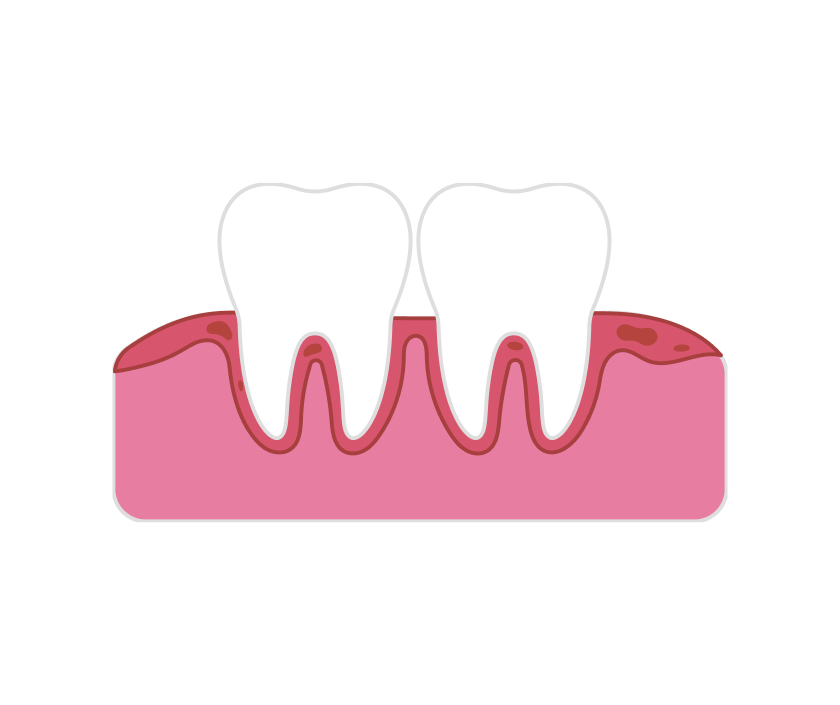
What Causes Gum Disease?
Plaque buildup is the primary cause of gum disease. As plaque grows, it hardens into tartar, which causes your gums to become irritated and inflamed. This process marks the earliest stage of gum disease – gingivitis.
Poor dental hygiene
Infrequent or ineffective brushing and flossing allows plaque to accumulate
Smoking or vaping
Both weaken your immune system and damage your gum tissues
Hormonal changes
Puberty, pregnancy, menopause, and other hormonal fluctuations can increase gum sensitivity
Genetics
Some people naturally have a higher risk of developing gum disease
Certain medical conditions
Diabetes and autoimmune diseases, can make it difficult for your body to properly combat gum infections
Crooked teeth
Can make it harder to properly clean your teeth – consider orthodontic treatment from the team at Atlanta Orthodontic Specialists to promote straight teeth and healthy gums!
Stages and Symptoms of Gum Disease.
Gum disease typically progresses through two main stages: gingivitis and periodontitis. Recognizing gum disease symptoms early is key to managing or reversing the condition before more serious complications develop.

Gingivitis
Gingivitis is the earliest stage of gum disease and often features gums that are red, swollen, or bleed slightly when brushing. While the symptoms can be mild, gingivitis is a warning sign from your body that plaque is beginning to irritate your gum line.
Fortunately, proper oral hygiene, professional cleanings, and guidance from dental experts make it possible to reverse gingivitis.
Periodontitis
Without proper treatment, gingivitis can progress to periodontitis. A more advanced and damaging stage of gum disease, periodontitis, is where the inner layer of gum and bone begin to pull away from your teeth. This causes pockets to form that collect bacteria and debris.
Periodontitis symptoms include receding gums, consistently bad breath, loose teeth, and pain while chewing. Without intervention, it can lead to abscesses, gum recession, and even systemic health issues.
Research indicates that advanced gum disease may increase your likelihood of developing other health issues like cardiovascular problems, diabetes, and low birth weight in pregnant patients. That makes treatment both beneficial for your smile and essential for your overall health. Regular dental visits, especially during orthodontic care, can help catch gum disease in its early stages and prevent it from escalating into periodontitis.
Can Gum Disease Be Reversed?
In many instances, gum disease isn’t a one-way street. In the earliest stage of gingivitis, it’s often possible to entirely reverse the condition. With a strong dental hygiene regimen that includes brushing and flossing, professional dental cleanings, and early intervention, many patients are able to restore their gum health without long-term damage.
That said, once the condition progresses to the second stage of periodontitis, the damage becomes permanent. Treatment here is still important, however, as while it won’t cure the condition, dental experts can help manage it and prevent further progression.

Gum Disease Treatment Options.
Once gum disease is identified by you or a medical professional, timely and targeted treatment is essential. The right treatment plan depends on how advanced the disease is and whether it’s impacting your gums, teeth, or underlying jawbone.
At Atlanta Orthodontic Specialists, we can help work with you to create a custom treatment strategy. Depending on your needs, your plan may include one or more of the following:
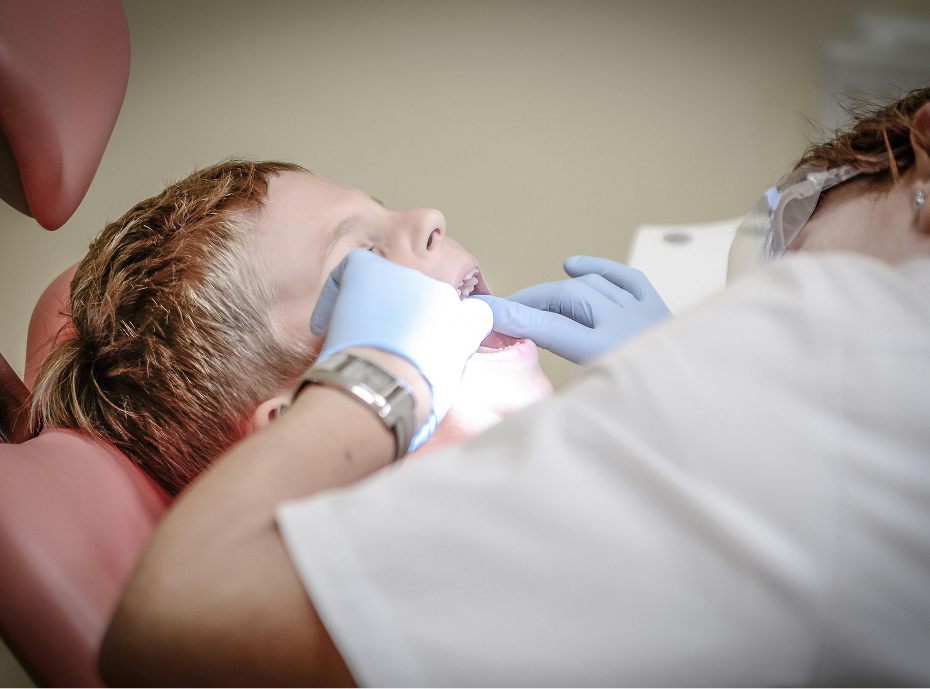
Professional dental cleanings
Regular cleanings help prevent gum disease from developing or progressing by removing plaque and tartar buildup, including in hard-to-reach places.
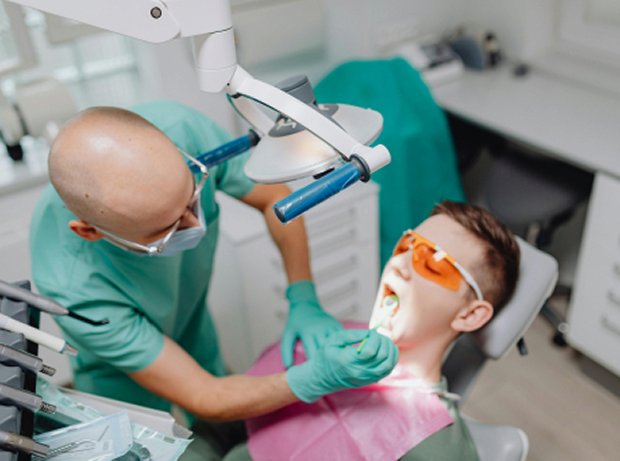
Scaling and root planing
Also called deep cleaning, this non-surgical procedure removes plaque from the gumline while smoothing tooth roots to prevent future buildup.

Antimicrobial mouth rinses
Prescription-strength mouthwashes with ingredients like chlorhexidine and cetylpyridinium chloride can reduce harmful bacteria and inflammation.

Lifestyle changes
Quitting smoking, modifying your diet, and increasing your water consumption can support better gum health and reduce your risk of recurrence.
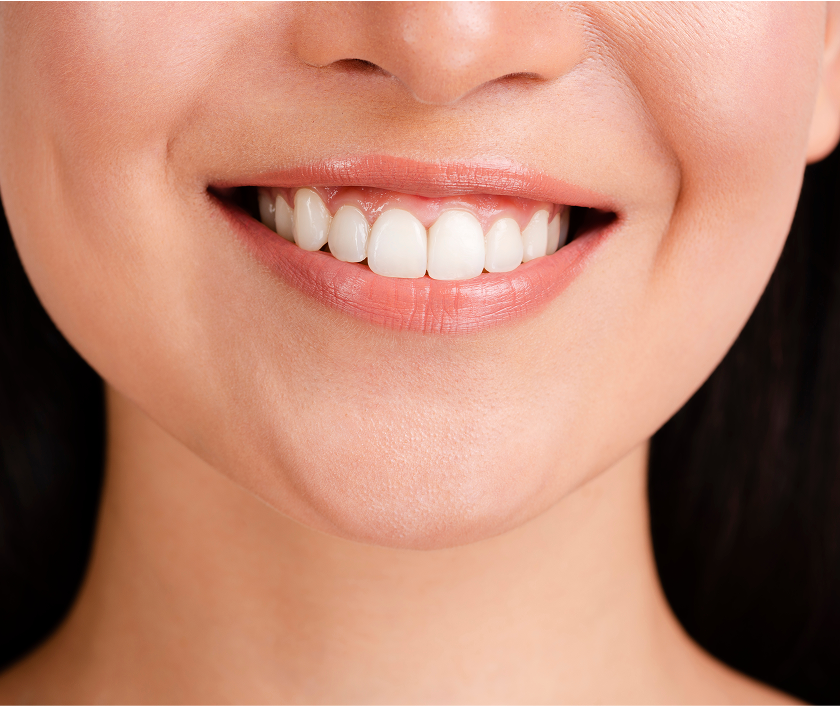
Orthodontic treatment
Misaligned teeth can worsen plaque buildup and contribute to gum disease. Our team can help with gum disease treatment in Atlanta by recommending solutions to support straighter, easier-to-clean teeth.
Why Choose Atlanta Orthodontic Specialists?
At Atlanta Orthodontic Specialists, we’re committed to helping you achieve the smile of your dreams. Whether you’re preparing for orthodontic treatment or simply looking to protect your long-term oral health, our team has provided top-quality care to the Atlanta community for over 40 years.
We take a holistic approach to orthodontics, with an emphasis on oral health and early intervention. If any signs of gum disease arise, our specialists can identify them promptly and recommend a personalized treatment plan.
Don’t wait for symptoms to worsen. With expert guidance and the right care, gum disease can be effectively managed, giving you a healthier smile and confidence in your oral health.
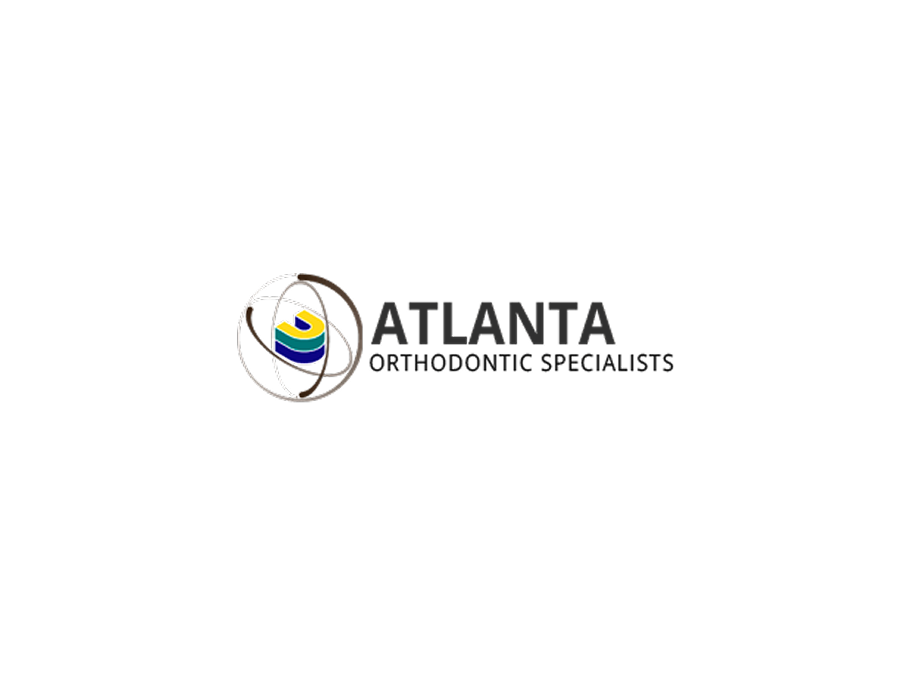
Frequently Asked Questions.
Is Gum Disease Contagious?
The bacteria that cause gum disease can spread through saliva, making transmission possible through kissing, sharing food or drinks, or using the same utensils. That said, exposure to the bacteria doesn’t guarantee you’ll develop the disease. Your oral hygiene, genetics, and immune response are the deciding factors.
When Is It Too Late To Reverse Gum Disease?
Gum disease has two primary stages: gingivitis and periodontitis. The early stage of gum disease (gingivitis) is often reversible with proper treatment. The damage caused by advanced periodontitis is permanent, but our team can still help manage the condition, reduce inflammation, and prevent further progression.
What Is The Best Mouthwash For Gum Disease?
Yes, you may be able to get veneers even if you have crooked teeth. However, it will depend on how severe your malocclusion is.
What Is The Best Toothpaste For Gum Disease?
Look for toothpaste with active ingredients such as stannous fluoride or triclosan. Both help combat bacteria, reduce inflammation, and protect against the harm caused by plaque and gingivitis.
Can Braces Cause Gum Disease?
Braces can’t directly cause gum disease, but they can contribute to the development of gum issues. Trapped food particles can lead to plaque buildup – a major cause of gum disease. Brushing, flossing, and regular dental cleanings are essential during orthodontic treatment.
Get Your Free Consultation.
Start the journey toward a straighter smile today!